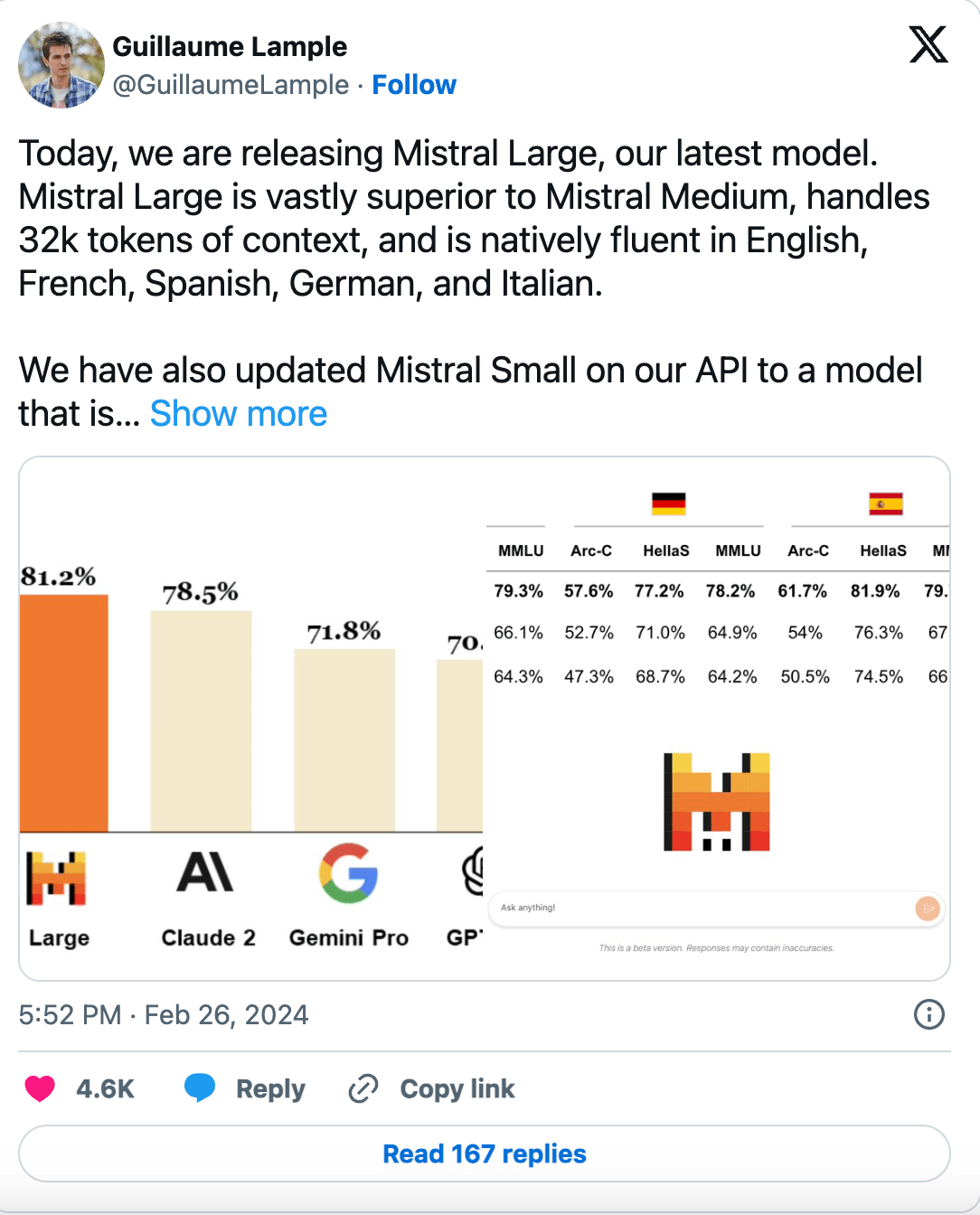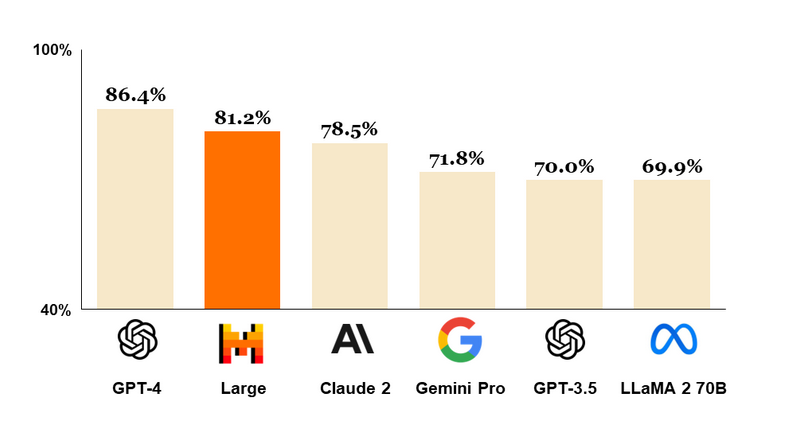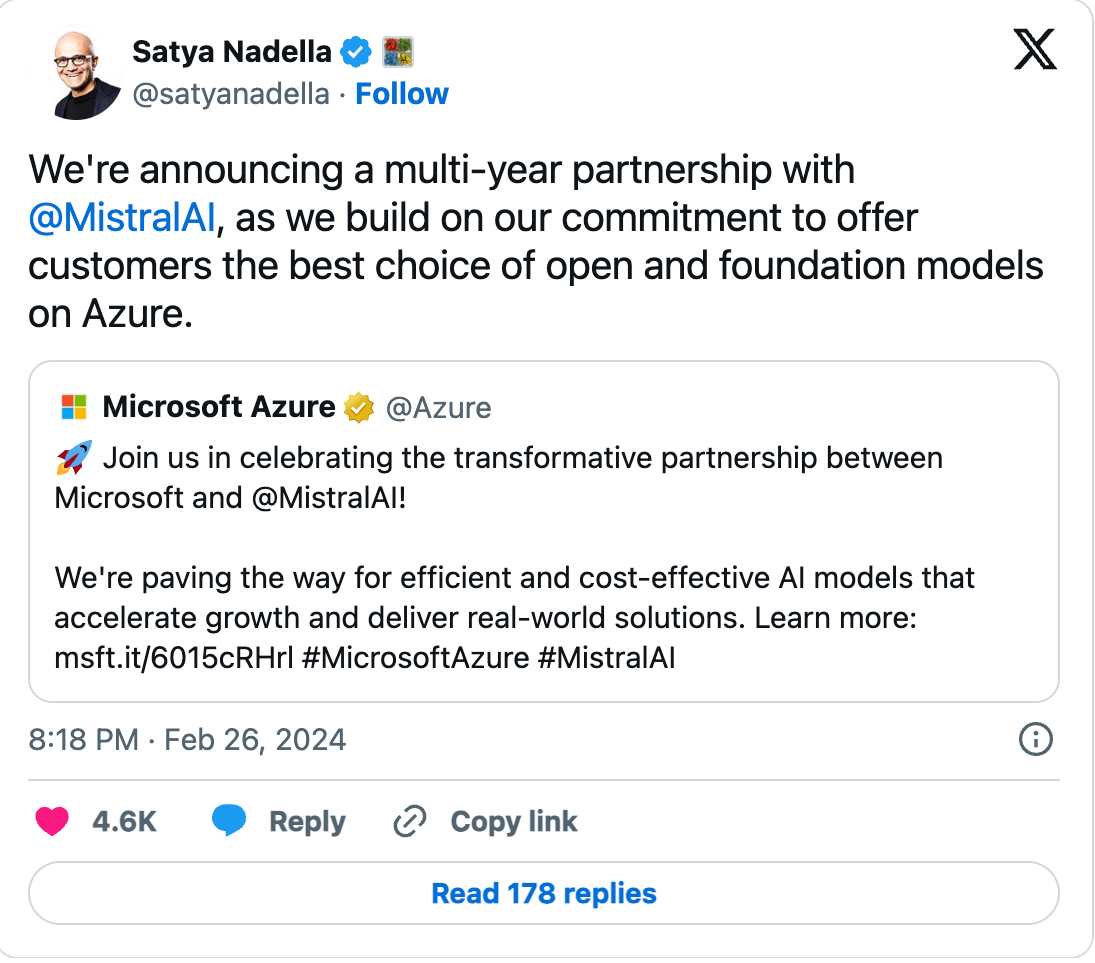France-based startup Mistral AI has added a new proprietary large language model (LLM) to the growing artificial intelligence market and claimed that the new Mistral Large could outperform several of its major competitors. The Paris-based company stated in an article published on February 26 that Mistral Large performed better than other significant LLMs in a multi-task language understanding test, excluding GPT-4, and showed strong performance in various mathematical and coding tests.
Performance of Mistral Large
Mistral Large‘s performance was not compared with xAI’s Grok, which was released last November, or with Google’s Ultra, which was released at the beginning of February. The founder and chief scientist of the company, Guillaume Lample, claims that Mistral Large is far superior to Mistral AI’s previous models. Mistral AI also introduced Le Chat, an AI chat interface built on top of their models, similar to how ChatGPT is built on GPT-3.5 and GPT-4.

In December, Mistral Large, which received funding of $487 million from firms like Nvidia, Salesforce, and Andreessen Horowitz, is reported to know over 20,000 English words and also speaks French, Spanish, German, and Italian fluently.

Noteworthy Details About Mistral AI
Although the first model of Mistral AI was released under an open-source license, Mistral Large is a closed and proprietary model similar to the latest LLMs released by OpenAI, which has led to some disappointment among observers at X. While third-party artificial intelligence chatbot ranking platforms like Chatbot Arena have not yet evaluated Mistral Large, its predecessor, Mistral Medium, ranked sixth in a list comprising over 60 LLMs.
Chatbot Arena’s thousands of pairwise ratings can be broken down through a Bradley-Terry model that uses random sampling to produce an Elo rating, predicting which model is most likely to win in direct competition against another.
The company also recently attracted attention by announcing a partnership with Microsoft to make Mistral Large available on Azure AI Studio and Azure Machine Learning.










